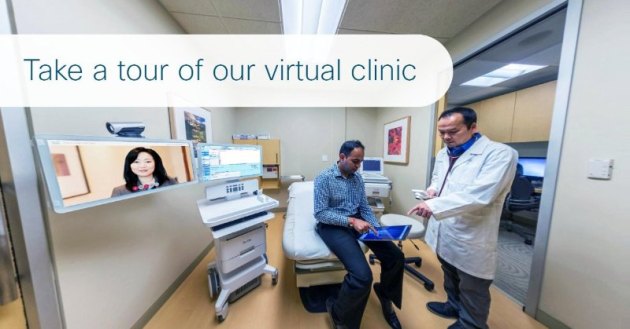The Cutting Edge of Medical Technology Content, Community & Collaboration
Among the many offshoots of the growth of technology; virtual healthcare is a very recent and important development. In simple language, virtual healthcare, a term easy enough to understand, is the use of technologies that enable remote consultation and monitoring of healthcare.
Putting technologies to remote use has been in use for a while now, what with corporate entities carrying out conferences and virtual conferences at the push of a button. Virtual technology has also been in widespread use in areas like education and for monitoring remote workers in many organizations. Virtual healthcare can be seen as a natural extension of these uses of technology.

Understanding the dynamics of virtual healthcare
Healthcare analysts are quite upbeat about the growth prospects of virtual healthcare, making prognoses about its explosive potential growth, with estimates ranging from a size of well over $3 billion by 2022 to much rosier, nearly $14 billion for video consultation alone by 2018. While time will tell whether these forecasts will be fulfilled, we need to understand this tool and its prospects and pitfalls.
When adapting virtual healthcare, patients and healthcare providers are likely to use virtual healthcare in these ways:
Consultation
This should rank as the most important element of virtual healthcare. Virtual healthcare itself would come to be of no use if it did not offer the patient the opportunity to interact with the patient remotely. Patients are likely to use technologies in the form of tablets, smartphones and other personal devices to consult physicians.
 Consultation is a very important component of virtual healthcare and it goes beyond just obtaining billing and other information that is usually a part of an Electronic Health Record (EHR). Virtual healthcare aids in direct, non-physical contact between the patient and the healthcare provider, which is what this medium primarily seeks to facilitate.
Consultation is a very important component of virtual healthcare and it goes beyond just obtaining billing and other information that is usually a part of an Electronic Health Record (EHR). Virtual healthcare aids in direct, non-physical contact between the patient and the healthcare provider, which is what this medium primarily seeks to facilitate.
This feature is all the more useful in situations where the patient may not be in a condition to travel to the healthcare provider or where patients with long-term ailments need to be monitored on a regular basis without having to visit the hospital.
 https://compliance4all14.files.wordpress.com/2018/03/ext.jpg?w=150&h=79 150w, https://compliance4all14.files.wordpress.com/2018/03/ext.jpg?w=300&... 300w, https://compliance4all14.files.wordpress.com/2018/03/ext.jpg?w=768&... 768w, https://compliance4all14.files.wordpress.com/2018/03/ext.jpg 800w" sizes="(max-width: 630px) 100vw, 630px" width="512" height="268" />
https://compliance4all14.files.wordpress.com/2018/03/ext.jpg?w=150&h=79 150w, https://compliance4all14.files.wordpress.com/2018/03/ext.jpg?w=300&... 300w, https://compliance4all14.files.wordpress.com/2018/03/ext.jpg?w=768&... 768w, https://compliance4all14.files.wordpress.com/2018/03/ext.jpg 800w" sizes="(max-width: 630px) 100vw, 630px" width="512" height="268" />
Records
EHR could be another major component of virtual healthcare. Following the passage and implementation of Obamacare; the EHR has become a very important document for people seeking healthcare. Virtual healthcare can bring in a new dimension to EHR by enabling documentation and recording of important events in the physician-patient relationship.
Drawbacks of virtual healthcare
While there is no doubting the fact that virtual healthcare is set for major growth; it is important to understand its inadequacies. The most important disadvantage of virtual healthcare is that it is best suited only for noncritical healthcare situations. It may help patients with long term ailments, as mentioned above, but can help only when the patient has reached a stage where all treatments are done and only resuscitation or convalescence is needed. For a patient requiring immediate attention in an emergency, virtual healthcare is not likely to be very effective. Thus, a patient seeking medical information or advice for a viral infection is far more suited for virtual healthcare than a patient in need of CPR.
The uses to which virtual healthcare can be put are limited, at least at this stage of its development. When this technology advances enough to be able to offer healthcare in all situations and for all kinds of ailments; it will become a more effective medium. Till then, virtual healthcare has to be understood and used for what it can offer.
Views: 38
Comment
© 2025 Created by CC-Conrad Clyburn-MedForeSight.
Powered by
![]()
You need to be a member of MedTech I.Q. to add comments!
Join MedTech I.Q.